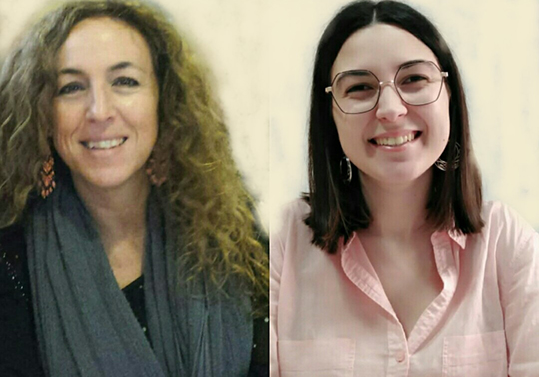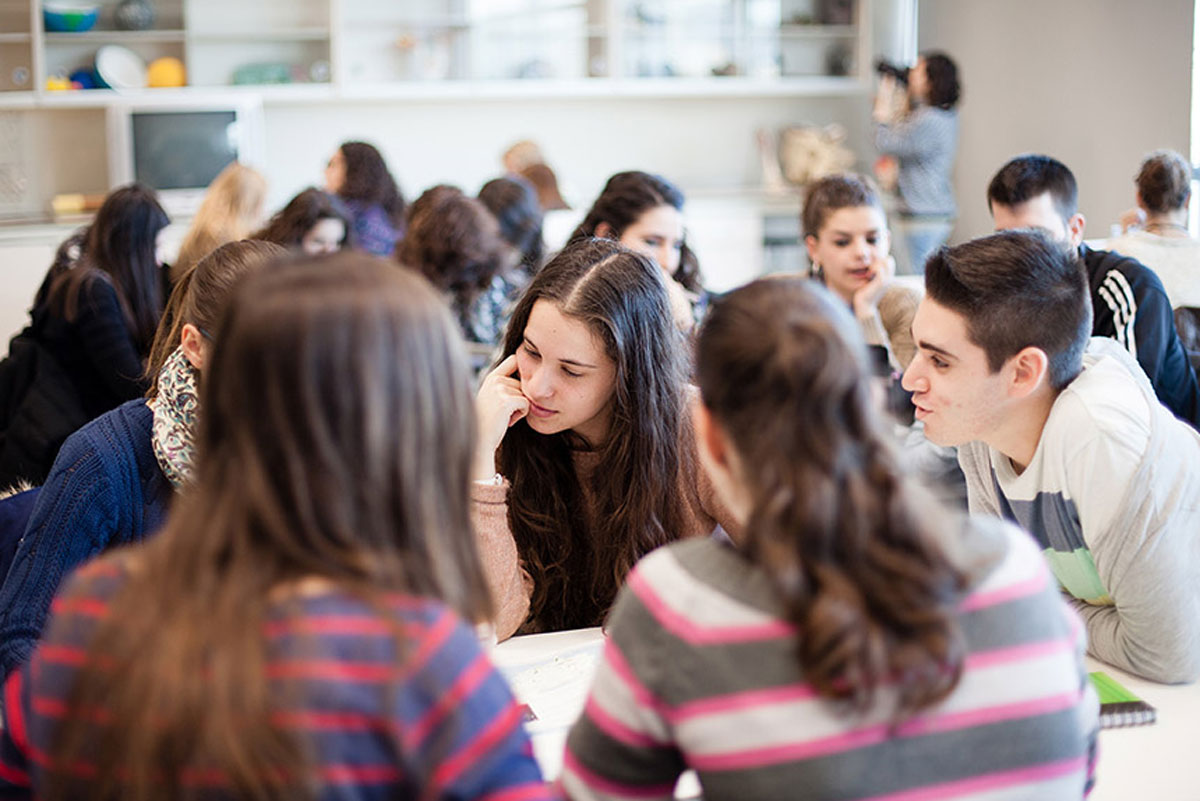A study carried out by the Universitat reveals the gender inequality of the online working, online studying and caregiving among the university community
- Press Office
- May 26th, 2020

Isabel Pla i Mar Moncho, researchers at the Faculty of Economics at the Universitat de València, are conducting research to find out how the crisis caused by COVID-19 is affecting the university community in their personal lives, work, study and care.
From the first results of the survey, which is open until June 30, the researchers warn that the consequences of the crisis caused by the Covid-19 questions the effectiveness of equal conditions for teleworking or tele-studying in the medium term and therefore the adoption of the 'new normality' must go hand in hand with the regulation of new forms of work and study, addressing existing inequalities between the three university groups: faculty, administration and services staff, and students. The authors conclude, with the data obtained to date, that the Universitat de València's teaching staff (PDI) have increased their workload but that, on the other hand, their productivity has decreased. For their part, the student claims to be overloaded: "This is the group that most reflects the dangers of inequality on the most harmful costs of confinement". While the administration and services staff (PAS) "see teleworking as more desirable than the rest of the university community”.
The three groups highlight, according to the authors, that among the causes that contribute to the decrease in productivity in paid work and studies are the need to perform some of the tasks in the work space, the loss of face-to-face communication with colleagues, inadequate spaces where work is done or computer problems.
The first results indicate that not only has been an increase in the time dedicated to paid work and study, but all three groups have seen a parallel increase in the time dedicated to household tasks and care. Although this aspect is generalized, it especially affects PAS and PDI. "To compensate for this situation, the schedules established for paid work and for study have had to be modified and extended, basically in untimely hours, so that personal time has practically been extinguished," explain Pla and Moncho.
The data from the Covid-19 pandemic reflect, according to the study, a gender-differentiated effect. Thus, women and men are affected by the crisis in different ways. This is most clearly seen in the care needs of girls and boys. In the case of teachers and administrative and service staff, both men and women claim to have increased their dedication to the home and to the caregiving. However, it is women who are most responsible for household tasks and the care of dependents. On the bright side, male teachers reflect a greater involvement than before the state of alarm in the tasks of taking care of children. In addition, other indirect indicators of greater responsibility for care show that far more women in both groups report "the difficulty of working with dependent persons because their attention is required at all times and their work is made more difficult by the risk of interruption, and they have less free time for themselves".
One of the consequences of this situation directly affects the careers of female academics, since, as researcher Elizabeth Hannon reported in a recent study, the number of scientific articles she was receiving from female academics had decreased dramatically, while the number of articles she was receiving from male academics had not.
Among students, the study notes that there is a substantial difference between women and men. While the majority of women claim to have increased or maintained their dedication to household tasks and care, men indicate that their time has not changed, or directly, they do not devote time to either care or household. "Therefore, it can be seen that women in the university community bear a greater share of the burden of the household and, above all, of care", say the researchers.
Thus, according to Pla and Moncho, "we must seek comprehensive institutional solutions that guarantee quality and equal working and study conditions, which facilitate the reconciliation of spheres and the co-responsibility of the genders". What is at stake from the point of view of the Feminist Economy is the need to put life at the centre and think about policies designed for good living without returning to 'normality' as it was conceived in society.
New habits and practices
The habits and customs of the university community have also changed. While the PAS and the teachers claim to consume more culture online or to have improved their diet, the students stand out for doing more sport. However, all three groups claim to be more connected to social networks. On the contrary, PAS and teachers indicate that they do less sport and consume more alcoholic beverages and students that smoke more.
According to the preliminary results of the surveys, "the general malaise in the university community is extraordinary". Increased stress, anxiety about friends and family, lack of concentration, insomnia or uncertainty about the future are some of the effects on occupational and mental health caused by the health emergency.
This project is promoted by the Feminist Economics Research Unit of the Department of Applied Economics at the Universitat de València.
More information:
File in: Recerca, innovació i transferència , Investigació a la UV , Facultat d'Economia , Economia Aplicada , PDI , PAS , Estudiant/a
















